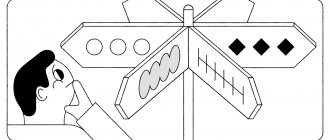Mechanism of occurrence
According to the mechanism of occurrence, dizziness is divided into systemic - associated with the vestibular apparatus, which is responsible for balance, and non-systemic, that is, non-vestibular. Most often the condition belongs to the second type. Such dizziness occurs due to changes in pressure, including when a person lies for a long time and then suddenly begins to move. It is benign and does not belong to pathologies.
True dizziness occurs due to irritation of the vestibular apparatus. It is divided into peripheral and central. The first includes all cases of damage directly to the organs of the vestibular apparatus. This also includes the accumulation of fluid in the labyrinth of the inner ear. The cause of central vertigo is damage to the nerve fibers of the brain responsible for the functioning of the vestibular system.
Not frequent dizziness
Let's consider situations and diseases in which such symptoms may occur. Dizziness may not be systematic. but only a rare effect. However, this may be a signal of serious illnesses or developing pathologies.
Presyncope
In this state, which lasts no more than a few seconds or minutes, it seems to a person that surrounding objects are moving, he feels hot, sweats profusely, feels nauseous, his eyes become cloudy, vision may even disappear, and the person becomes pale. Presyncope usually occurs when the patient is sitting or standing, but not lying down. The cause may be orthostatic hypotension (a decrease in pressure after moving from a horizontal to a vertical position), arrhythmia and vasovagal crisis (excessive activity of the vagus nerve, leading to a decrease in heart rate).
Mental disorders
Depression, anxiety or panic disorder, alcohol addiction or personality disorder can lead to non-systemic dizziness. For example, if a person, in addition to this symptom, also has shortness of breath, rapid heartbeat and sweating, then most likely we are talking about a panic attack. A psychiatrist works with all these conditions.
Damage due to medication
Some aminoglycosides (for example, gentamicin) can be toxic to the vestibular system: they damage the hair cells of the inner ear, provoke imbalance and cause oscillopsia (the illusion of vibration of surrounding objects) when moving the head. This condition can become chronic.
Antiepileptic drugs, sedatives, and tranquilizers can also cause non-systemic dizziness. Sometimes blood pressure-lowering medications are too effective and blood pressure drops to abnormal levels, causing symptoms similar to dizziness.
Acoustic neuroma
When walking, a person begins to sway, surrounding objects move, his hearing may also deteriorate, and tinnitus may occur - these are the main symptoms of an acoustic neuroma (benign neoplasm). In most cases, such patients are prescribed surgery or radiation therapy.
Stranding syndrome (sea sickness on land)
After traveling on water, in very rare cases, a person may develop this syndrome: the patient feels that he is losing his balance, he is swaying, it seems to him that he is walking on uneven ground. This condition usually goes away within a couple of days. However, in more severe cases, your doctor may prescribe benzodiazepines or the antiepileptic drug clonazepam.
Non-systemic dizziness can also be caused by anemia (accompanied by fatigue, weakness and pallor), hypoglycemia (low blood sugar, which may be manifested by sweating and confusion), inflammation of the ear, heat stroke or dehydration.
Possible diseases
In the absence of pathologies, they speak of benign paroxysmal or positional vertigo. It lasts up to 1 minute. In most patients, its episodes are not isolated and appear again with a sharp transition from a lying position to any other.
Pathological causes of dizziness include:
- Meniere's disease;
- vestibular neuronitis;
- Lermoyer's syndrome;
- central positional nystagmus;
- labyrinthitis;
- transient ischemic attack;
- stroke;
- vertebrobasilar insufficiency;
- vestibular migraine;
- perilymphatic fistula.
Only a specialist can make a correct diagnosis after a comprehensive examination. In some cases, no pathologies or abnormalities are detected, but the person experiences dizziness. Then they talk about the psychogenic nature of the condition and recommend reducing the level of stress in life.
Is it dangerous?
If dizziness in the morning when getting up is noted after following a strict diet, after squatting for a long time, this is evidence of a simple lack of glucose in the blood. If dizziness occurs after a nervous conversation with your superiors, this indicates a sharp release of adrenaline into the blood and subsequent vasospasm.
If an unpleasant phenomenon occurs after suffering from otitis media and is accompanied by vomiting, nausea and cold sweating, you should immediately consult a specialist. You should do the same in a situation where dizziness is accompanied by nausea, fear of light and severe headaches.
If there is a problem such as lack of coordination, it is strictly forbidden to postpone going to the doctor. Neglect of this rule can lead to serious consequences.
Important! The reason to contact a professional is the presence of a variety of additional symptoms. This is a direct reason to be wary.
Diagnostics
It is important to track at what point dizziness appears, as well as to notice its other symptoms: anxiety, fear, vomiting or nausea. Often the condition occurs in the lateral decubitus position, which is considered an important diagnostic sign. The state of health may worsen when the head is thrown back, which indicates problems with the inner ear or the vestibular apparatus located in it.
Examination plan:
- Consultation with a therapist: examination, listening to complaints, taking an anamnesis.
- General blood analysis.
- Consultation with an otorhinolaryngologist: otoscopy, hearing test.
- Consultation with a neurologist: analysis of nystagmus, assessment of the functioning of the vestibular apparatus.
- MRI for suspected vascular pathologies, stroke, cerebrovascular accident, etc.
Often the problem can be solved before the person reaches the last stage of the examination. In most cases, a person is treated not by a neurologist, but by an ENT specialist.
Why does dizziness occur?
Dizziness that occurs when standing up has a scientific formulation - it is vertigo. There can be many reasons for such a pathology; at the moment there are more than 8 dozen of them. It is quite difficult to make an accurate diagnosis, especially if you rely on only one symptom.
Dizziness can occur in healthy people, and it can also be a sign of a serious pathology, for example, a phenomenon such as orthostatic hypotension, that is, collapse. In this case, the patient feels severe discomfort when there is a sudden change in body position or when the body remains in one position for a long time, for example, when getting out of bed, he feels dizzy.
In almost all cases of dizziness, the patient experiences darkening of the eyes. If he does not promptly take a position that will ensure blood flow to the head, he will faint.
There are other, no less important and dangerous causes of dizziness. An unpleasant phenomenon during the process of changing position may occur on the following grounds:
- Violation of the work and functioning of the vestibular apparatus;
- Staying the body for a long time in a lying or sitting position;
- Sudden changes in blood pressure;
- Constant stress, neurosis and depression.
The more pronounced the symptoms, the greater the reason for going to the doctor. Dizziness is often a symptom of low blood pressure. As soon as the position of the body changes, blood flows out of the head, that is, oxygen starvation occurs.
This symptom can be attributed to patients who have certain problems with blood vessels and the heart. The problem occurs no less often in adolescents who are going through puberty. A symptom of this type is typical when the body is dehydrated, with significant blood loss and with long-term bed rest.
Dizziness is quite often a simple reaction of the body to taking certain medications. These could be medications designed to lower blood pressure or antidepressants. The cause of dizziness when standing up may be a certain disease, for example, diabetes, atherosclerosis, anemia and other pathologies.
Treatment
Therapy is selected according to the established diagnosis. If signs of a stroke are detected, help is provided immediately. The patient is placed in the intensive care unit or hospitalized in the neurovascular department.
For pathologies of the inner ear, treatment is carried out by an otolaryngologist. Anti-inflammatory drugs and antibiotic therapy are indicated.
Psychogenic dizziness should be treated by a psychotherapist. It is recommended to reduce the level of stress in life and use breathing practices to calm and relieve tension. If necessary, the patient is prescribed mild sedatives.
Read also: Why do you feel dizzy?
Dear patients! Remember that only a qualified doctor can make an accurate diagnosis, determine the causes and nature of the disease, and prescribe effective treatment. You can make an appointment with our specialists or call a doctor at home by calling 8-(4822)-33-00-33
Be healthy and happy!
Dehydration
People who are dehydrated at night may sometimes wake up feeling dizzy. Here are other signs of dehydration that you may experience in addition to dizziness:
- thirst
- fatigue
- headache
- dry mouth and lips
Here are the reasons why you may be dehydrated:
- not drinking enough fluids during the day
- sleeping in a hot environment
- excessive alcohol consumption
- illnesses that cause vomiting and diarrhea
- taking medications that cause frequent urination
- drinking too many caffeinated drinks, which makes you urinate more often
Prevention
Lifestyle changes can help prevent or reduce morning dizziness. These changes include:
- drinking plenty of fluids to avoid dehydration
- to give up smoking
- reducing alcohol consumption
- balanced and healthy diet
- avoiding consumption of caffeinated drinks in the evening
- getting enough sleep
- regular physical activity
- reducing and controlling stress
Popular medications on the topic
Cerebrolysin Cerebrolysate
For more information about the causes of dizziness, watch the video:
Diagnosis and treatment of dizziness is a difficult task even for an experienced doctor. In every case of a painful, prolonged or sudden attack, consultation with a specialist is required. Only he will determine what the patient should do next, what consultations and examinations she needs.
This article has been verified by a current qualified physician, Victoria Druzhikina, and can be considered a reliable source of information for site users.
Bibliography
1. https://kiberis.ru/?p=50203 2. https://nikio.ru/docs/02-golovokruzhenie1.pdf 3. https://docs.cntd.ru/document/901918942
Assess how much it was useful article
4.4 146 people voted, average rating 4.4
Did you like the article? Save it to your wall so you don’t lose it!
Medications
Some medications may cause dizziness as a side effect. These medications include certain ():
- antibiotics
- diuretics
- opioid painkillers
- antiepileptic drugs
- immunosuppressants
- antidepressants
- neuroleptics
- antiretroviral drugs
If you are taking medications that you think are causing morning dizziness, you should talk to your doctor. Your doctor may recommend changing your dosage or switching to a different treatment.
What is unsteadiness of movements?
Unstable movements – permanent or temporary loss of coordination. If they occur systematically, this indicates the presence of abnormal disorders in the body. Extra-systemic indicate that inflammatory processes are occurring in the body.
Most often, unsteadiness of walking manifests itself in combination with other symptoms:
- headache;
- unexplained sudden weakness;
- tingling in the legs;
- dizziness.
To better understand, it is necessary to know why a person may stagger when walking and why this is so important.
Movement is achieved through a healthy bone structure, developed muscles and healthy joints. The cerebellum is the part of the brain responsible for coordination; it is also controlled by vision and the vestibular apparatus.
Impulses pass through the spinal cord, sending a signal to the lower parts of the body that a movement needs to be performed. Only after this the muscles begin to work.
When these impulses are disrupted, the entire system is disrupted. This is where the gait disorder comes from. A transmission failure causes the legs to become unresponsive.
Failures in the musculoskeletal system lead to exactly the same result. The legs cannot correctly carry out the necessary “commands”.
If the functioning of the cerebellum is disrupted, the impulse itself does not reach, therefore, the command does not arrive at all. Consequently, a person cannot move, his legs do not obey.
Obstructive sleep apnea
Obstructive sleep apnea (OSA) is a sleep disorder that can sometimes cause morning dizziness. OSA occurs when a person's breathing is repeatedly interrupted or blocked during sleep. These interruptions disrupt sleep and can affect blood oxygen levels.
Here are other symptoms of OSA ():
- loud snoring and the feeling that you are suffocating during sleep
- need to urinate more often at night
- dry mouth and headaches in the morning
- difficulties with concentration and memory
- excessive fatigue during the day
Over the long term, OSA may increase the risk of developing certain chronic diseases, such as heart problems, diabetes and asthma.
People with symptoms of OSA should see a doctor to have their condition evaluated. Depending on the underlying cause of OSA, treatment options may include lifestyle adjustments, use of breathing apparatus at night, and surgery.
Doctor's help
It is impossible to make a diagnosis yourself when it sways from one side to the other. This is done exclusively by specialists. To begin with, doctors monitor the patient’s movements using the following methods:
- observation of movements directed forward with the face and forward with the back;
- doctors watch how the patient moves in a straight line with his right and left sides;
- alternate change of step rhythm;
- comparison of walking with eyes closed and with eyes open;
- watching a person climb stairs;
- movement around an object (for example, a chair);
- making turns while driving;
- It is also suggested to walk on your toes and heels.
Based on the results, the doctor prescribes further examination and treatment:
- undergoing magnetic resonance imaging;
- X-ray;
- CT scan;
- blood donation (general analysis and biochemical);
- A biopsy of muscle tissue is performed.
In addition, the patient should be examined by other doctors:
- ENT;
- ophthalmologist;
- endocrinologist
After going through all the stages, the doctor can diagnose the patient and prescribe the necessary treatment.
You should turn to traditional medicine only after examination and consultation with a doctor.
Any medications are prescribed only by a certified specialist! All drugs are prescribed based on the individual characteristics of each organism. Medicines that help one person can cause irreparable harm to another.
Summarize
- Most people experience dizziness from time to time and it is usually not a cause for concern.
- However, regular dizziness upon waking may be a sign of an underlying medical condition.
- Possible causes of dizziness include dehydration, ear infections, low blood pressure, and medication side effects.
- People who regularly wake up feeling dizzy or have other symptoms along with dizziness should see a doctor.
The article was prepared by experts for informational purposes only. It should not be used as a guide for treating medical conditions and is not a substitute for professional medical advice, diagnosis, or treatment. In case of illness or any symptoms, you should always consult a doctor and not self-medicate.
Tags: Dizziness
About the author: Anatoly Dementyev
General practitioner, candidate of medical sciences, nutrition expert. Graduated from Leningrad State Medical University named after. acad. I.P. Pavlova.
- Related Posts
- What are the causes of loss of appetite and fatigue?
- What causes dizziness during menstruation?
- Foods that cause gas and bloating in adults
« Previous entry










